Dying For Sex: Season 1 – Review and Summary
Dying For Sex creates an almost perfect mini-series that can inspire, make you cry, and potentially have you feel seen.
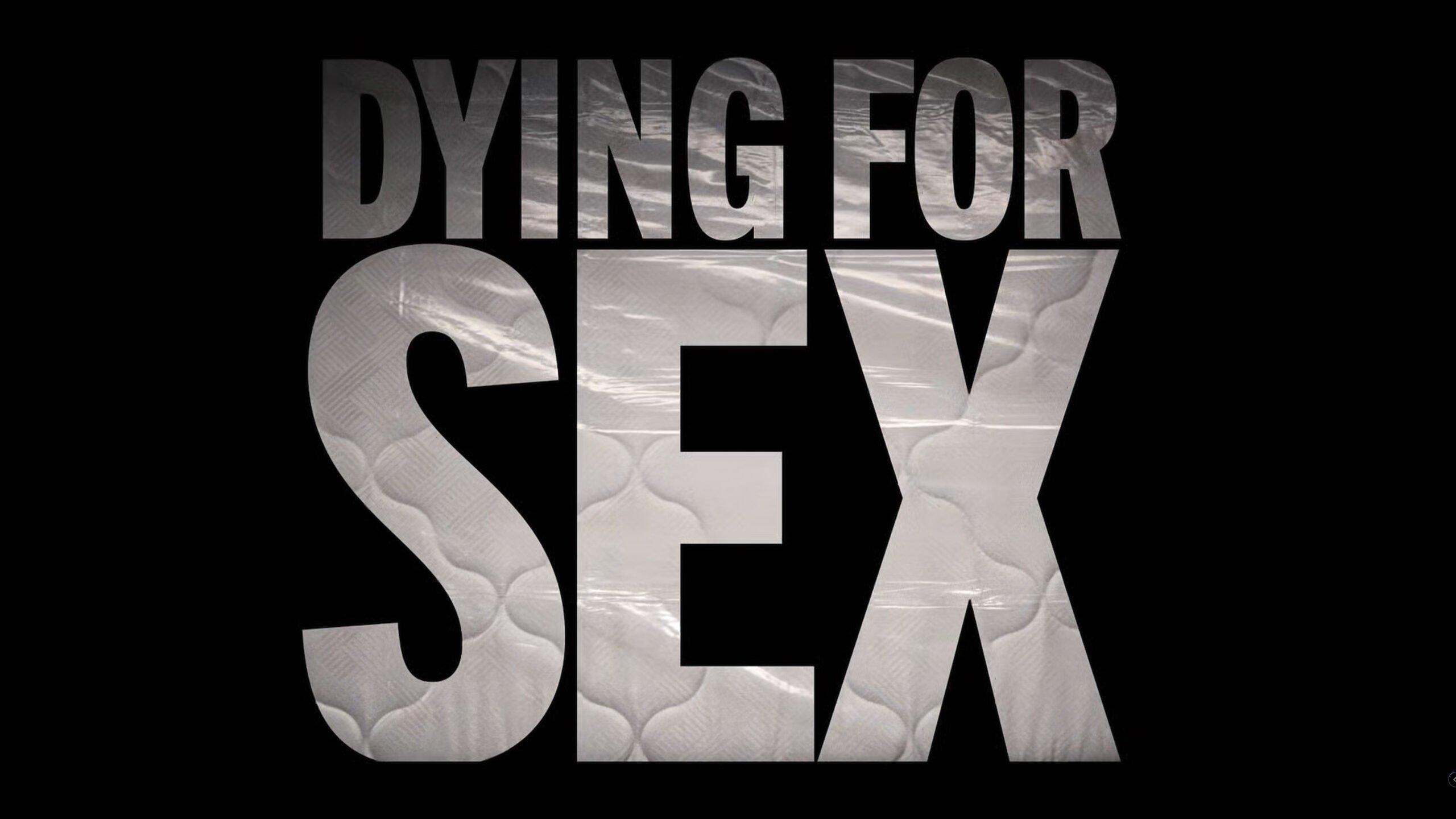
Spoiler Alert: This summary and review contains spoilers.
Additionally, some images and text may include affiliate links, meaning we may earn a commission or receive products if you make a purchase.
Dying For Sex: Season 1 Details
- Number of Episodes: 8
- Network: FX
- Genre(s): Comedy, Drama
- Actors: Michelle Williams, Jenny Slate, Kelvin Yu, David Rasche, Esco Jouley, Jay Duplass, Sissy Spacek, Paula Pell
- Renewal Status: Ended
Plot Summary
Molly is married and feels unsatisfied. Not just because her husband, Steve, hasn’t touched her in a long time, but because she never orgasmed with him, or anyone really, including herself. So, when she learns the cancer she thought she beat has returned and metastasized after being in remission for two years, Molly dedicates the rest of her life to exploring her sexuality and getting that elusive orgasm.
Review
Highlight(s)
Michelle Williams Creates Someone Who Is Flawed But Lovable [86/100]
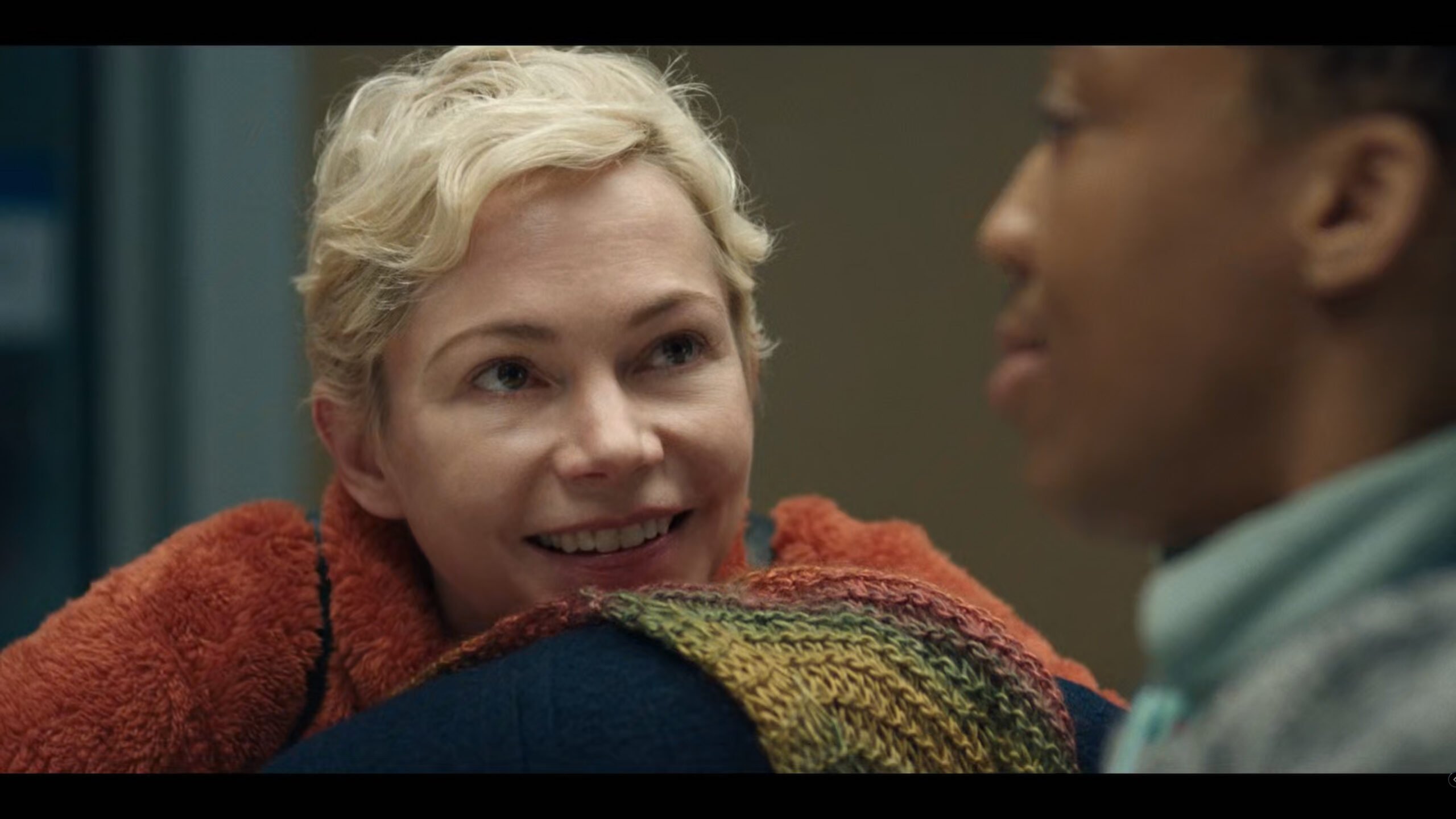
Dying For Sex is funny, but it isn’t a straightforward comedy. It doesn’t play up on the situations Molly gets into, and doesn’t craft a simple, lovable character for Michelle Williams. For at times, you may not like Molly. Her wanting to stay on her husband’s insurance, as she goes through surgeries and doctors’ visits, while having sex with damn near anyone who seems capable of giving her what she wants, it can make you not like her – especially since she uses their shared money, early on, to pay for hotels, sex toys, and to handle a blackmail situation.
Yet, alongside the writers, Williams finds a way to give Molly space to be human. She can be someone wanting sex, desire, and control, yet far more than a woman who learns she sometimes likes to dominate and ridicule the men she sleeps with. There is trauma from her childhood, which gets in the way of pleasure, the guilt of how much her best friend Nikki sacrifices to be there for her, since Nikki knows Molly would do the same, and then there is death staring at Molly.
Often, her trials and tribulations are handled humorously, such as by avoiding the stage 4 cancer group and hanging out with the fun people in earlier stages who believe they’ll survive. At other times, it’s simply about ensuring her doctor treats her like a person, not just a name on a chart, or how she interacts with her family, friends, and nurses as the season comes to an end.
What Williams and the writers put into Molly is someone who wants to die with some perception of dignity, die with her hands on the wheel, braking slowly, and as you watch this measured decline, it makes when that inevitable moment hits, you are left in tears.
The People In Molly’s World Have Their Place, But Don’t Feel Like They Are Jockeying For The Spotlight [82/100]
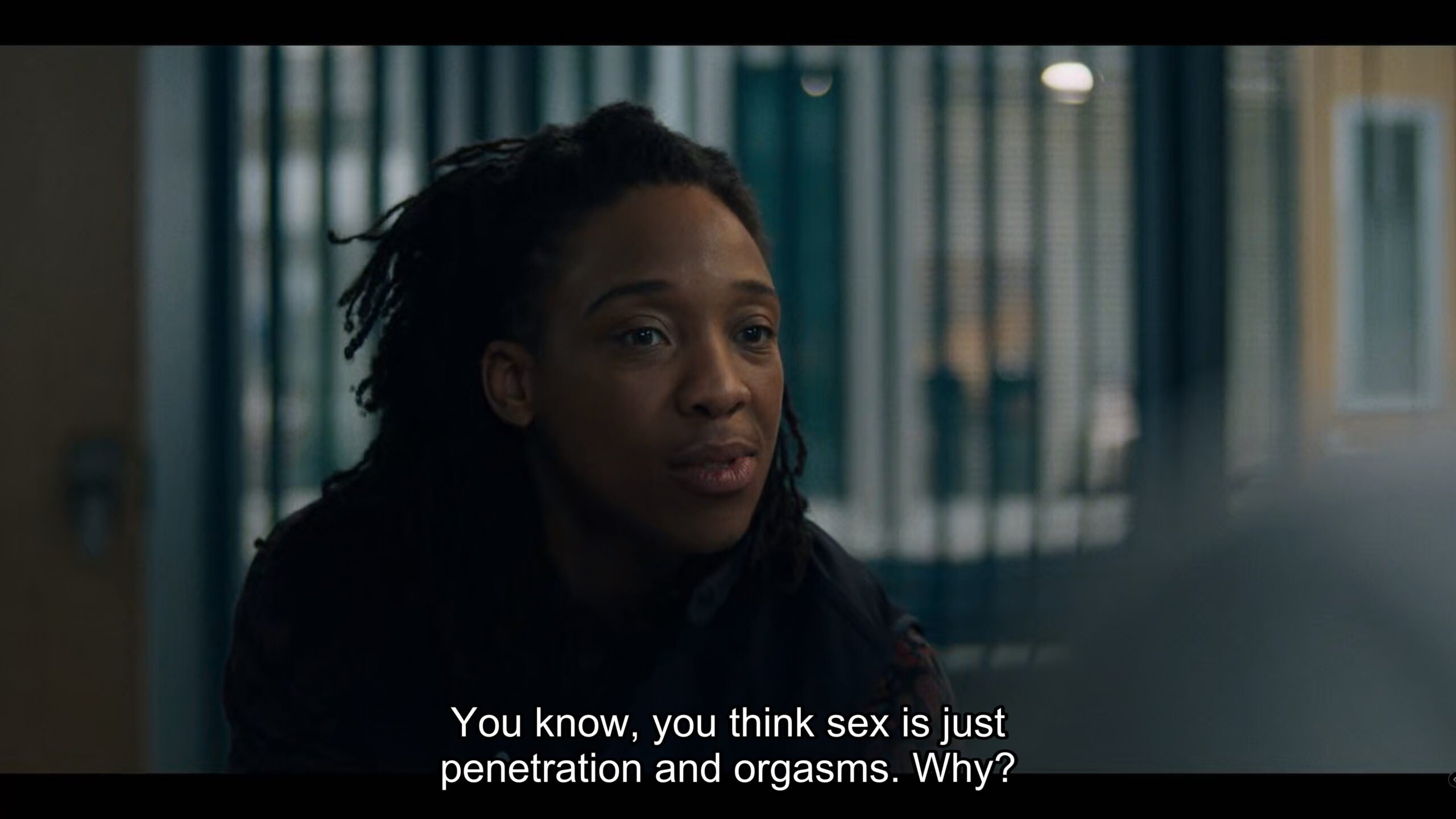
What I’m starting to realize, the more I watch performances with some form of a critical lens, is that finding supporting characters and actors who know what their role is meant to do, and then focusing on playing that well, rather than using it as a launch pad, can be hard for any show or movie to acquire. But with Dying For Sex, that isn’t the case. Jenny Slate might be a recognizable voice and was playing a character that was very much in her wheelhouse, but nothing about what she did made it seem she was competing with what Williams was trying to accomplish.
I’d even say for the unquestionable standouts in Esco Jouley as Sonya or Paula Pell as Amy, both delivered performances which demanded you know more than their characters’ names, but the actors. Yet, despite Emmy-worthy performances, in tight scenes which could easily be delivered to voters, they enjoyed their moment in the sun, then stepped back to push Williams and Molly forward.
Thus giving Dying For Sex, that balance of you loving Molly, but also being curious and enjoying the people she either is having sex with or those who she chooses to be part of her death journey.
The Monologues Given To Amy and Sonya [88/100]
If I may double down on Amy and Sonya, their monologues truly deserve a special highlight. Sonya talking about sex is what is making me so giddy to see Jouley live when they do this play called Trophy Boys in New York City, and Amy’s speech about death? In my mind, Jouley got the breakout role, and Pell got that moment, which is probably going to win her accolades once awards season ramps up.
Although it should be clear that if they don’t compete in the same category, they both deserve to win.
Molly’s Trauma Healing [84/100]
As noted, part of what Molly struggles with is getting in her head when having sex, for one of her mother’s boyfriends drugged her mom and left a mark on Molly. The topic of men violating a woman or girl’s trust isn’t new by any means, but what makes it different each time is the approach. I May Destroy You from Michaela Coel has one handle of sexual assault, and Molly has her own regarding her mother’s ex molesting her, and what often makes these shows feel so impactful isn’t seeing an actor deal with the trauma, be it during or after, but the healing.
Molly has lived with this man haunting her whenever she has gotten close to orgasm for most of her life, and the show doesn’t have her confront him, beat him, or even with her mother, Gail; Molly doesn’t place blame on Gail’s feet and make her suffer for her struggles. Gail punishes herself enough already, and factors that into why she and Molly aren’t close.
Yet, be it through Sonya joining Molly’s journey, the encouragement from Nikki, or even Steve’s willingness to accept he can’t give Molly what she wants, there is a growing belief amongst Molly’s community that it would be better for Molly to have the ability to be messy, make mistakes, and find joy, than have her continue to suffer in silence.
Strangely, this creates yet another factor that could bring you to tears, for despite most sexual journeys usually being something geared towards laughing at, or there being a push to tantalize, Molly is different. It is through watching her heal in a way that may seem unconventional that it further deepens the perception that she is human, deserves grace, just as much as anyone trying to find out what makes life worth living.
Noah’s Place In Nikki’s Life (And Nikki Admitting She Struggled With Her Role) [83/100]
Let me say, though, while this is Molly’s story and we applaud how supporting characters play their part, I also appreciated characters who weren’t directly tied to Molly’s story, like Noah. As Nikki’s boyfriend, when the show starts out, watching him be the one to advocate for Nikki’s well-being, try and fail to set boundaries, and be the person who supports Nikki as she tries to step up in Steve’s stead, felt so necessary and welcomed.
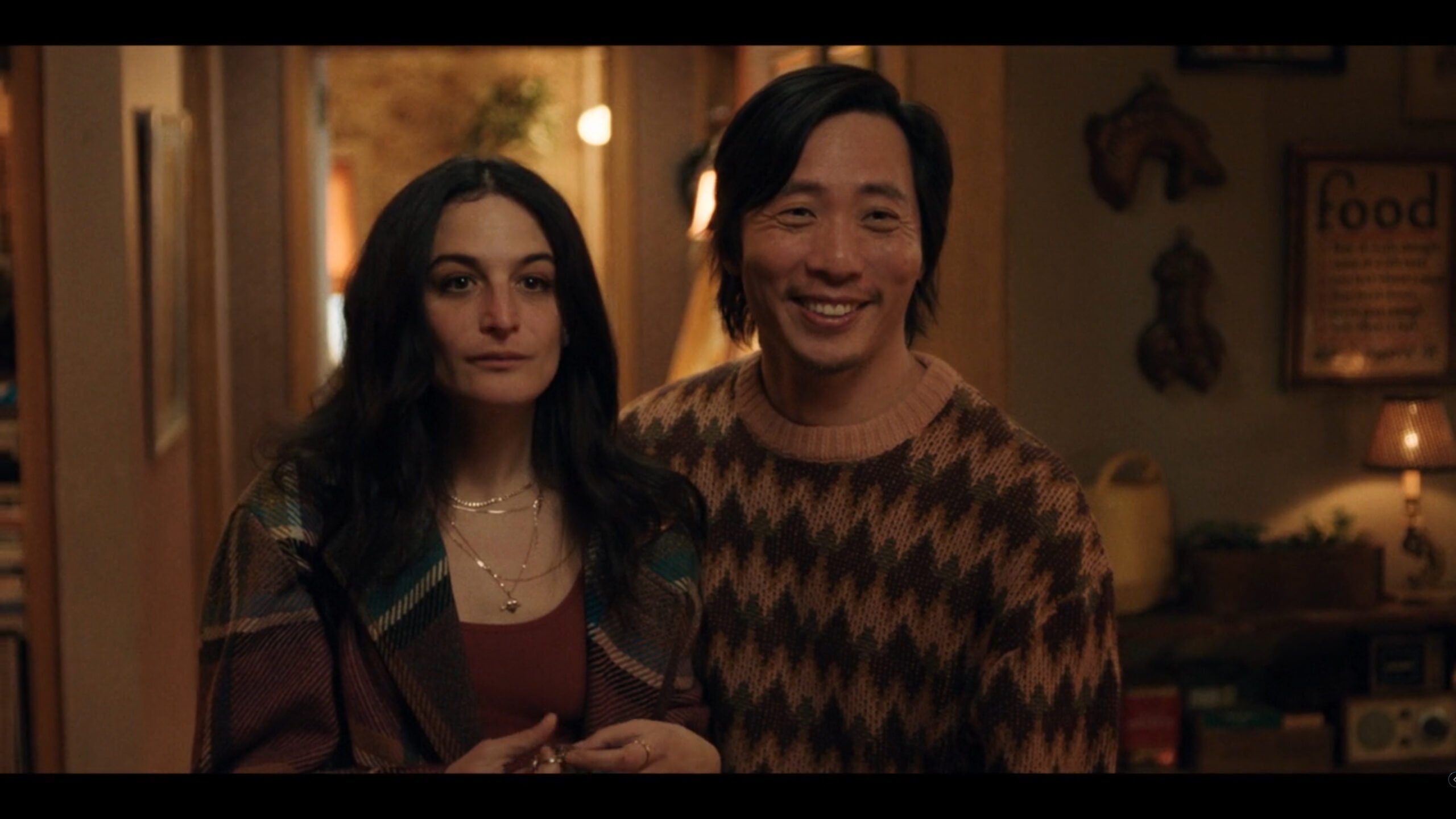
I say this because, too often, they can paint the Nikki character as a saint. Someone who, because she dropped everything, is such a good friend, without making it clear that being that noble is hard and potentially may not be worth it. Nikki loses a lot of herself in pursuit of making Molly’s life comfortable and privileged enough to where she can primarily focus on prolonging her life and having that magical orgasm.
So to have Noah there, reminding Nikki she is human and can’t be Molly’s all, for who has the capacity to do that? It felt like permission for anyone in Nikki’s situation to admit what they are doing is hard, they feel like they aren’t doing enough, and honestly, there is the desire to be selfish despite all their loved one is going through.
Now, do they take the opportunity to be selfish? No. But, just as much as Dying For Sex needed Molly to be human, flawed, and yet still someone you wanted to root for, I’m glad they extended that to Nikki as well.
The Path To Being Submissive Yet Knowing When To Take Control [85/100]
One thing we haven’t spoken about much is one of the key things Dying For Sex is about – the sex. We’ve touched upon Molly’s struggles, the healing, but not her triumphs, and it is just another way in which everything comes together and honors her journey. Note: rather than being crass, sexual for the sake of tantalizing or making jokes to poke fun at how awkward and weird sex can be, or even overtly focus extensively on Molly’s age, what we see is another counter to the norm.
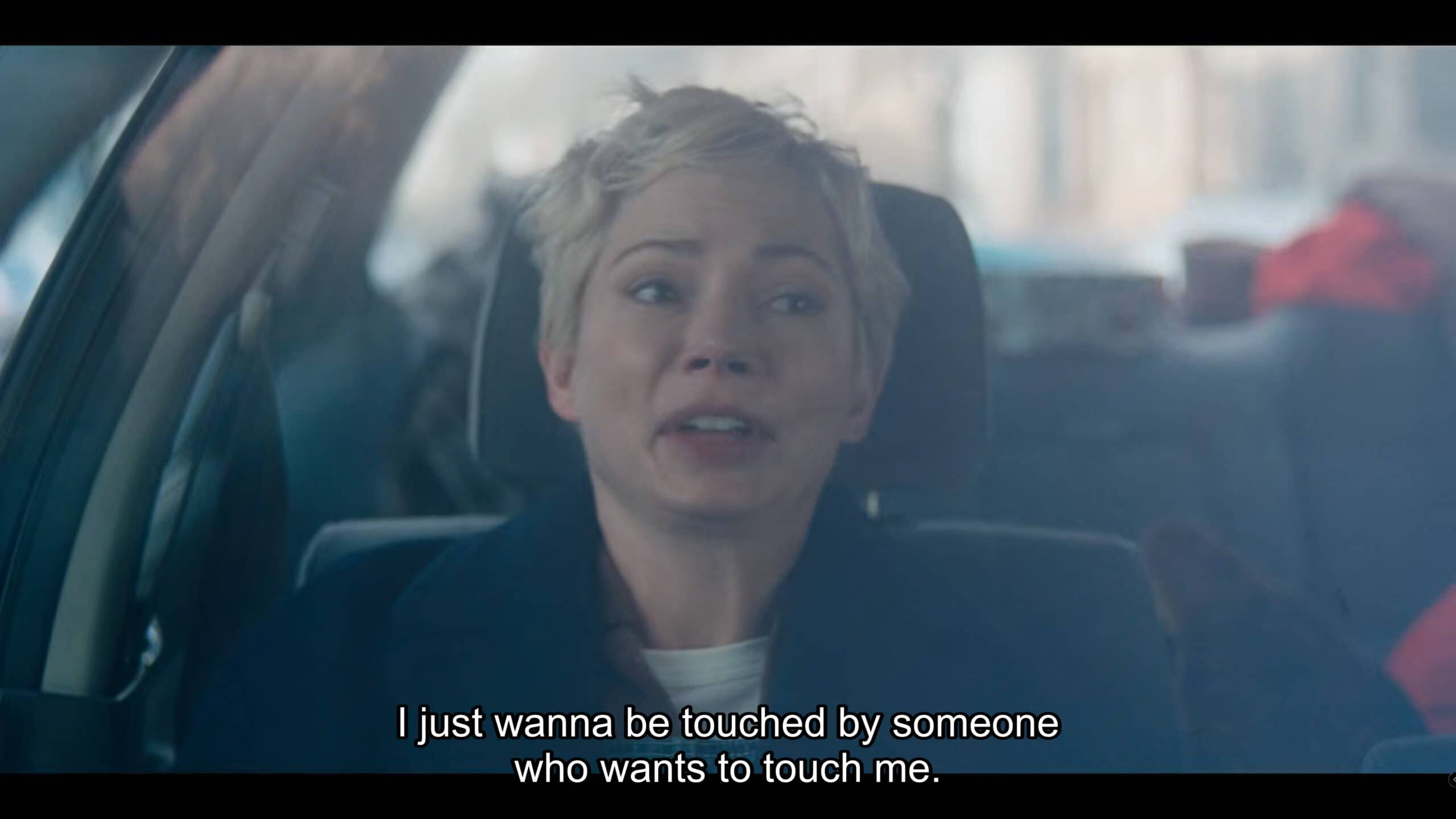
Yes, Molly’s journey to sexual fulfillment has her countering trauma by wanting to be in control, finding men with degradation kinks, or exploring what she likes from younger men to those middle-aged, cut or uncut, and all kinds of sizes. But the lasting impression goes beyond the superficial. Yes, can you bring into the conversation that Molly isn’t your usual 20-something on a sexual journey? That she had a mastectomy and that plays a role in all this – absolutely. I’d even add that for women who have gone through that, Molly can be a beacon of hope, whether you look at William’s journey as Molly or take note that this is based on a true story.
However, it never feels like the selling point of Dying For Sex is to watch Williams have simulated sex. It’s about Molly learning what has gotten in her way, beyond her mother’s ex, and understanding that, as much as a sense of control can be fun, to get over the hill, pass the mountain and experience the kind of pleasure she wants, not just fantasizes about, she has to learn how to let go.
And with that, you see her learn how to not just be nice and agreeable, but a good person who is firm. She learns how to communicate what she wants, rather than just be aware of what she doesn’t have. Which, honestly, adds to why you’ll get emotional watching this for all these life-changing experiences, the shift she has that allows for what appears to be self-actualization, it comes at the end of her life, just when it seems she finally understands what it means to live it.
On The Fence
Dr. Pankowitz [77/100]
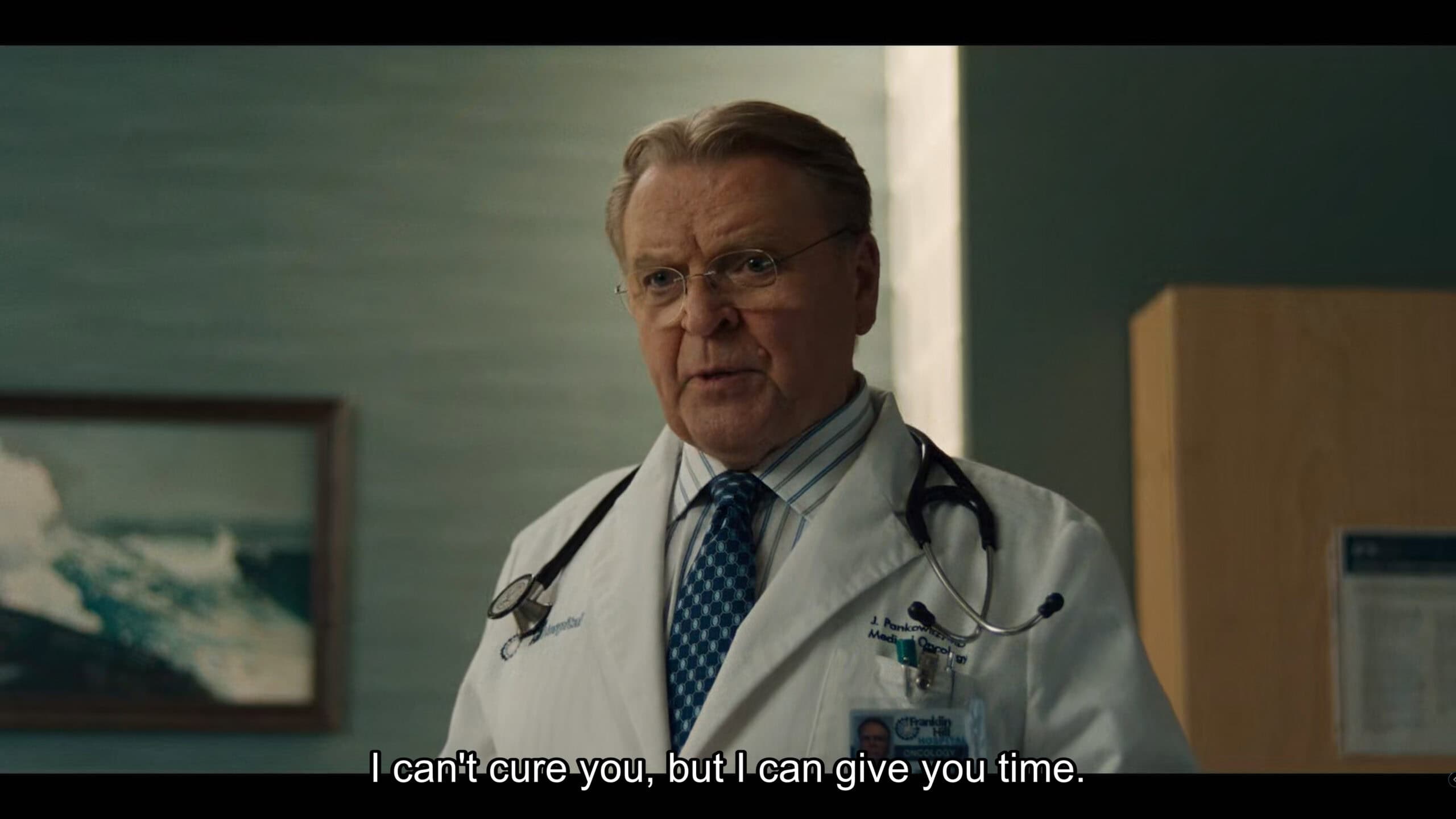
Here is the thing: I get Dr. Pankowitz, Molly’s primary doctor throughout the season, is supposed to represent most doctors. He is often matter-of-fact, just trying to get through his day, and a part of me can appreciate that, and also Molly, as she transfers some of the things she learns in her sexual journey to other parts of her life, leading to her conveying her needs to Dr. Pankowitz. In many ways, it is inspiring.
However, the comedy bits with Dr. Pankowitz, like his discomfort about talking about orgasms and things that happen to female bodies, felt out of place and a bit weird. Almost like they really wanted to push this character being a typical male who acts like he knows best about what women like Molly are going through, yet is skittish to engage on the specifics.
And don’t get me wrong, this is based on a true story so this could be a real person or Dr. Pankowitz could be a manifestation of all the frustration people, or women in particular, go through with having male doctors or figures speaking on things they don’t know, haven’t felt, or lack the empathy to speak on. But with Dr. Pankowitz’s age and years of experience, him getting weird about certain topics felt less about him being old school and more about crafting jokes. Which, considering how most characters got the opportunity to feel human and three-dimensional, sometimes Dr. Pankowitz stood out like a sore thumb.
Overall
Our Rating (83/100): Positive (Watch This) – Recommended
“Dying for Sex” balances humor, trauma, and navigating one’s truth through a standout performance by Michelle Williams. Throughout, the show doesn’t offer a sanitized or purely comedic journey, for Molly is flawed, messy, and at times unlikable—but always real. Her relationships, especially with her best friend Nikki, showcase both codependence and deep love, with supporting characters like Amy, Sonya, and even Nikki’s boyfriend Noah adding necessary moments and guidance without overshadowing the central arc.
Special care, and note, also has to be given to the writing and how it honors Molly’s healing process, especially her reckoning with past trauma and reclaiming control in her sex life, without resorting to sensationalism. But, while one character—Dr. Pankowitz—sometimes breaks the tone by seemingly being made to allow the viewer, or those involved in the production, to vicariously speak through Molly to men like him, the series overall offers a deeply human story about desire, dignity, and what it means to truly live before dying.
Check Out Our Coverage Of This Season
Check out our page for this series, which features more recaps, reviews, and articles, or our TV series page for our latest recaps, reviews, and recommendations.
TV Shows We’re Covering This Season
Images used for editorial and commentary purposes. All rights remain with their respective copyright holders.


